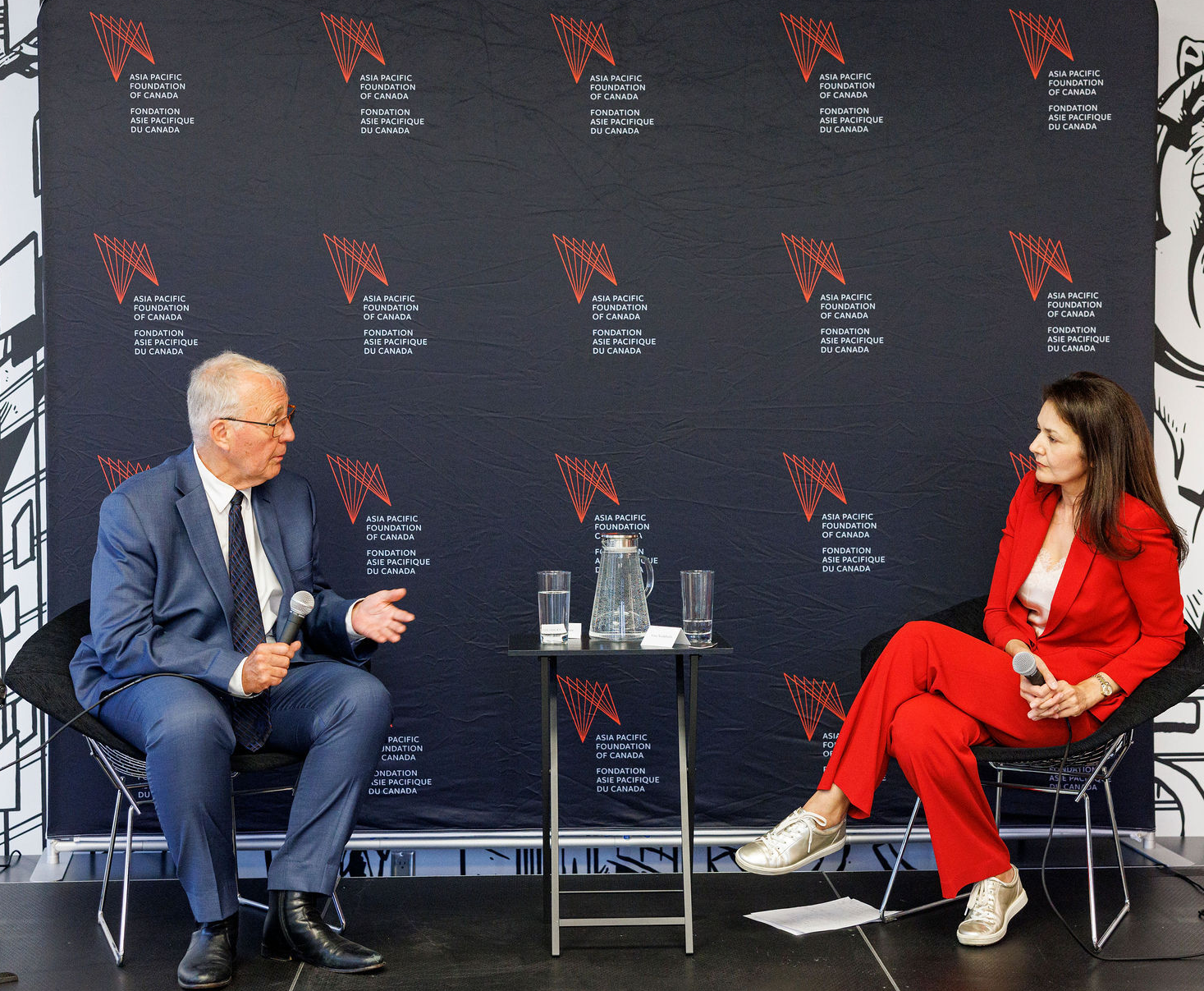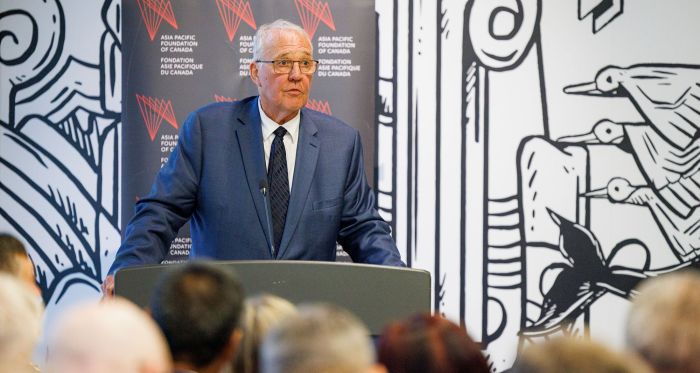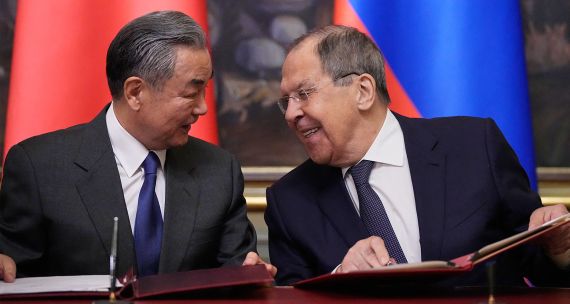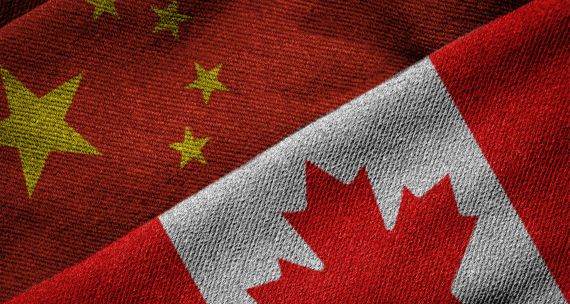The Asia Pacific Foundation of Canada (APF Canada) had the pleasure of hosting Canada’s Minister of National Defence, the Honourable Bill Blair, on August 8, 2024, for a discussion on Canada’s Indo-Pacific Strategy, focusing on the implementation of its objective of “promoting peace, resilience and security.” The discussion was moderated by Vina Nadjibulla, APF Canada’s Vice-President, Research & Strategy. Minister Blair’s visit to British Columbia was part of a broader set of local engagements that featured a meeting with Australian Deputy Prime Minister and Defence Minister Richard Marles, during which the two allies committed to enhancing their “interoperability through multilateral exercises, including in the South China Sea.”
In his address at APF Canada, the minister framed his remarks by stating that Indo-Pacific security is “absolutely critical” to Canada’s security and well-being. For example, he noted, six of our top 13 trading partners are in that region, and the sea lanes on which the Canadian economy depends, including in the Taiwan Strait, must be kept open and secure.
“The world has become a more dangerous and challenging and uncertain place,” he said. In Canada, Minister Blair added, we are growing increasingly concerned about the security of the Arctic, whether due to the rapid warming caused by climate change or the increase in Russian and Chinese activity and interest. This includes Chinese dual-purpose research vessels and surveillance platforms that are collecting data about the Canadian North, he explained. “Despite not being an Arctic nation, China has sought to become a ‘polar great power’ by 2030,” Minister Blair told the audience.
Overseas, he said, “China is challenging the international rules” that “keep us all safe,” adding China is trying to reshape the international system in a way that helps it advance its own interests. But, especially on matters of security, Minister Blair noted, Chinese interests increasingly diverge from those of Canada, such as China seeking to establish exclusive control of international airspace and waterways in the Indo-Pacific.
Watch: Encore Video Presentation
In early June, Minister Blair attended the Shangri-La Dialogue in Singapore, the region’s premiere high-level security forum. He described his experience as “transformative” in that it impressed upon him that many countries in the Indo-Pacific view the world not through a bipolar U.S.-China lens, as is the case in many parts of the West, but rather in much more multipolar terms.
While in Singapore, he also met with China’s defence minister, Admiral Dong Jung. It was the first bilateral meeting between the two countries’ defence ministers in 11 years. In this meeting, Minister Blair raised, among other issues, Canada’s concerns about China’s recent military activity around Taiwan, but he also noted that he looked forward to future dialogue with his Chinese counterpart and the opportunity for them to share their respective countries’ concerns. When asked what the main objectives of such dialogues would be, the minister stressed the need to avoid accidental escalation in the South and East China Seas and the need to explore potential collaboration on issues of disaster risk management and climate change.
During the event’s moderated discussion, Ms. Nadjibulla asked the minister about the growing prevalence in the Indo-Pacific of mini-lateral groupings shaping the region’s security architecture and what he viewed as planned Canadian contributions. (Currently, Canada is not a member of any U.S.-led mini-lateral groupings such as the QUAD or AUKUS). Minister Blair responded by noting that, in July, Canada not only participated in the Rim of the Pacific (RIMPAC) exercises – the world’s largest maritime exercise – but a Canadian officer also commanded the maritime component of RIMPAC. In addition, he said, Canada recently wrapped up a two-day joint maritime exercise in the South China Sea with Australia, the Philippines, and the U.S.

Ms. Nadjibulla also asked Minister Blair to respond to criticisms that, these recent joint exercises notwithstanding, Canada is not doing enough to contribute to peace and security in the Indo-Pacific region and is being left out of the U.S.-led networks that are bringing together democracies such as Australia, South Korea, and others. The Minister stressed that Canada is committed to doing its part, including becoming part of the emerging ‘latticework’ of mini-lateral groupings. He also believes, however, that Canada needs to “earn” its role in these mini-lateral processes by bringing tangible benefits to the partnerships and demonstrating that its contributions will not be episodic, but consistent and reliable.
As examples, the minister pointed to a Memorandum of Understanding signed in January between Canada and the Philippines for closer defence co-operation; a ‘2+2’ meeting between Canadian and South Korean foreign and defence ministers scheduled for later in 2024; and Canada and Japan working together on a General Security of Information Agreement.
Domestically, Canada is also focusing on bolstering its defence industrial base and reforming its procurement practices. Ottawa has faced tough questions about when and how Canada will meet the two per cent GDP threshold for defence spending – a NATO benchmark. Ms. Nadjibulla referenced recent polls that show that the percentage of Canadians who support increases in defence spending is growing at an “unprecedented” rate. Minister Blair added that in making the case to Canadians about why we need to make these investments, we should emphasize that this is not about preparing for conflict, but rather trying to avoid conflict.

A member of the audience asked Minister Blair about China’s invocation of ‘red lines’ in its international negotiations, noting that many of these ‘red lines’ are, in fact, matters for legitimate negotiation. The audience member pointed out that that is especially the case for issues involving territorial claims made over locations in international waters, such as the South China Sea. These ‘red lines’ are a negotiating tactic on China’s part, the commentator added, and Canada should not take such assertions at face value.
The same audience member also observed that there has been a lot of discussion about Canada meeting the two-per cent threshold on NATO military spending, but much of this discussion has been about spending more on military hardware when Canada should be focused on where the threat is now, which is very much in the cyber domain.
Another audience member asked about the minister’s response to the political crisis unfolding in Bangladesh. Minister Blair reiterated Canada’s strong support for the restoration of law and order, adding that he felt that there needed to be some accountability for the violence that has taken place in Bangladesh. The move to appoint an interim government is an encouraging sign, he noted, but Canada will need to watch the situation carefully.
• Edited by Vina Nadjibulla, Vice-President Research & Strategy, APF Canada





